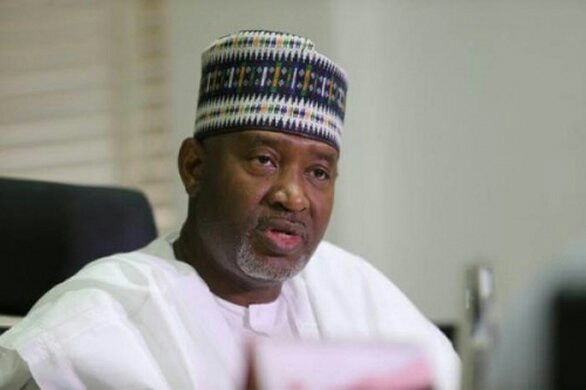News
National carrier needs $300m initial capital — FG
The new national airline , Nigeria Air , will require initial capital of between $ 150 m and $ 300 m , and the Federal Government is seeking a strategic partner to operate the carrier , according to a document seen by Reuters on Thursday .The Minister of State for Aviation , Hadi Sirika , on Wednesday said the government would not own more than five per cent of the new carrier .
He made the comments while providing details of the airline at the Farnborough air show in London , England .
The government plans to launch the airline in December , making good President Muhammadu Buhari ’ s election campaign promise.
Decades of neglect and lack of investment have left Nigeria with low- quality infrastructure seen as a hurdle to prosperity . The government has said that upgrading it will require private investment .
“ The initial capital is likely to be in the range of $ 150 m to $ 300 m , invested in tranches over time from start up through the first years of operation , ” the government document stated .
It noted that the government would provide the initial capital but did not state the sum or give further details .
The government will “ facilitate the process for opening up the capital of the airline to private sector financial investors , ” the document added .
A private operator , sought through a Public Private Partnership process , would manage the airline without interference , it stated .
Nigeria Air will serve domestic and international markets , and is expected to have a fleet of 30 aircraft in five years with hubs in Lagos and Abuja.
British billionaire , Richard Branson , set up domestic and international carrier , Virgin Nigeria in 2000 , but pulled out in 2010 in frustration at what he said was interference by politicians and regulators .
The airline he created , which was later rebranded as Air Nigeria , closed in 2012 after collapsing under about N 35 bn of debt , which left it unable to pay workers , a former finance director of the company told Reuters at the time .
Nigeria is overhauling its aviation infrastructure and handing over its airports to private managers in order to improve the business environment for the industry to attract investment , according to the document .
It noted that current air traffic in the country was around 15 million passengers, which is expected to grow at five per cent per annum through to 2036 .
The government said a majority stake could be available to an overseas backer as it seeks know – how and cash to help the start -up avoid the fate of former flag carriers .
The country has no cap on overseas ownership of its airlines and will be prepared to offer more than 50 per cent of Nigeria Air to a strategic ally , Tilmann Gabriel , who is helping to coordinate the project, said in an interview with Bloomberg on Wednesday at the Farnborough air show .
Sirika held talks at the expo with the chiefs of Ethiopian Airlines Enterprise, Africa ’ s biggest carrier, and Qatar Airways , which holds a stake in British Airways owner, IAG SA .
Other operators are also interested , according to the executive , who said the new airline would have a fleet of 30 aircraft and operate 80 routes , half of them international, within four years .
In unveiling the plan for Nigeria Air , which will have a tail design featuring an eagle – like swirl in green and white , Sirika said that having once been dominant in African aviation , Nigeria had a “ huge need and desire ” for a national airline .
The new operator plans to begin flying in December with a fleet of 15 leased aircraft , and has started talks with Airbus SE and Boeing Co on buying new aircraft . The requirement includes short – haul planes for local and domestic flights plus wide – bodies for flights to long- haul locations such as London and New York . Inter – continental services should begin in the middle of next year .
Ethiopian Air ’ s Chief Executive Officer , Tewolde GebreMariam , said in an interview with Bloomberg on Tuesday that his company was interested in the Nigerian project.
Ethiopian Air , Africa ’ s only consistently profitable carrier , serves about 70 global cities and 60 across Africa from its hub in Addis Ababa . It already owns stakes in carriers in Malawi and Togo , and is seeking to establish holdings in Zambia , Chad, Mozambique , Guinea and Eritrea , while helping to manage existing operators in Equatorial Guinea and the Democratic Republic of Congo .
Follow us on social media:




